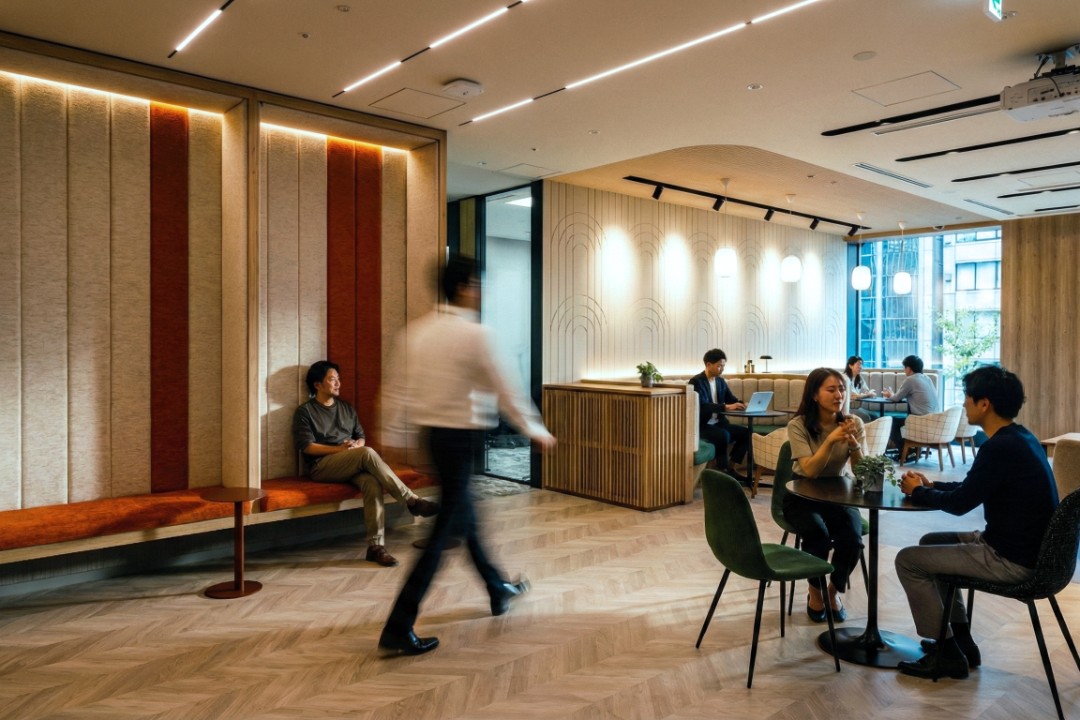Navigating the Japanese Office Rental Market: Challenges and Solutions for Foreigners

Japan is renowned for its technological innovation, manufacturing prowess, advanced infrastructure, global trade influence, and high standards of living. All this contributes towards the country being deemed the fourth-largest economy in the world according to a Forbes report, therefore making it highly appealing to international companies. Yet, one of the common hurdles that foreign businesses face when entering the Japanese market is its complex rental landscape, which can be challenging for entrepreneurs and firms unfamiliar with local customs. Understanding these intricacies will help companies figure out potential obstacles and navigate them smoothly.
Why Navigating the Japanese Office Rental Market is Challenging for Foreigners
Figuring out the office rental market in Japan involves getting a grasp of several barriers, starting with language and communication. The real estate sector mainly operates in Japanese, which often leads to miscommunications or misunderstandings of lease details and contractual obligations for foreigners who aren’t fluent in the language.
Then there’s the fact that the country has unique and complicated leasing terms. Non-Japanese companies will come across terms like shikikin — hefty deposits that typically range from 4-12 months of rent — as well as reikin, a non-refundable fee that usually amounts to one or two months’ rent. Additionally, most leases need a Japanese resident to act as a guarantor, presenting another obstacle for businesses without local contacts.
Foreign companies also need to take cultural expectations into account when scouting office spaces. Japan’s strict seismic safety standards require careful attention when choosing work premises, ensuring buildings comply with earthquake-resistant construction regulations. Sustainability is being increasingly prioritised, so adherence to green building standards could also influence office selection.
Common Challenges Foreigners Face in the Japanese Office Rental Market
Foreign businesses entering Japan often find the high upfront costs needed to rent an office in Japan quite surprising. The combination of deposits, reikin or key money, agent fees — generally one month’s rent — and lease renewal fees can really add up. Companies should also consider that these costs may be even higher for prestigious properties or prime locations.
Finding a local guarantor comes with even more hurdles, as foreign businesses usually lack established connections within Japan. Without a reliable guarantor, lease approvals can be difficult, limiting access to desirable locations. In addition, lease agreements in Japan are infamously rigid, making it difficult to negotiate terms or end a contract early.
Another issue is the scarcity of space in major cities like Tokyo and Osaka. This makes it more difficult for businesses to locate spaces in these areas that suit them without having to compromise on space requirements or pay sky-high rents. Business operations may be negatively impacted by these characteristics, particularly companies that require the ability to scale up or down.
How Foreigners Can Overcome Challenges in the Japanese Office Rental Market
One way to get around the complications of Japan’s office rental market is to look into serviced offices or co-working spaces. These flexible alternatives to conventional office environments come furnished and outfitted with essential infrastructure like internet connectivity, telecommunications, and office equipment. This plays a big part in lowering setup expenses and administrative burdens, so that foreign companies can quickly get to work without worrying about complex lease structures.
International businesses often partner with real estate agents or local experts when searching for rental prospects. This can sort out communication issues and clarify cultural nuances, and facilitate smoother negotiations. For instance, a bilingual agent can lower or even do away with key money altogether, secure shorter lease terms, or work out more favourable deposit conditions. Their local expertise also helps companies identify properties that meet seismic and sustainability standards, ensuring compliance without added stress.
Japanese landlords normally don’t offer much beyond standard leasing terms, but they can be persuaded into agreeing to more favourable conditions, especially if businesses show proof of reliable financial backing or that they’re willing to commit to longer initial leases. Hammering out specific terms, such as renewal fees, exit clauses, or gradual rent escalations, can significantly lower overall costs and enhance operational flexibility, facilitating better financial management for businesses newly entering Japan.
Legal Considerations Foreigners Should Keep in Mind in Japan’s Office Rental Market
It’s important to understand the legal complexities that come with renting office space in Japan. Businesses must have a firm grasp on the differences between fixed-term leases, which terminate automatically, and renewable leases that extend unless outright cancelled, typically incurring renewal fees. Clients must also restore office spaces to their original condition upon lease termination, often resulting in high refurbishment costs.
Foreign businesses must also stick to legal and regulatory requirements, including business registration and ensuring the rented property can withstand earthquakes, a common occurrence in Japan. Proper documentation must be submitted promptly to maintain legal status and avoid penalties or complications. For example, a non-Japanese business owner applying to work in the country under a Business Manager Visa must provide a physical office address, which means they can’t use virtual offices.
Another aspect to consider is accessibility. Lease agreements can differ vastly when it comes to specifying when clients can enter the premises outside standard business hours, such as evenings, weekends, or holidays. Clarifying these terms beforehand is vital to ensure business operations align seamlessly with the lease terms, avoiding disruptions or unforeseen restrictions.
Clearly defining business needs regarding office types and locations goes a long way towards understanding how Japan’s rental market works. It’s vital to make strategic location choices as they have a direct bearing on growth opportunities and operational efficiency. So foreign businesses in Japan need to seek out professional assistance to tap into local expertise to streamline processes and negotiate shrewdly. This will provide them a secure foundation for market entry and successful business growth in one of the world’s biggest economies.
Looking for a Flexible and Hassle-Free Office Solution in Japan?
Renting an office in Japan can be challenging, but there are simpler ways to tackle these hurdles. If you’re aiming to enter the Japanese market with a workspace that meets local requirements while offering a flexible, collaborative environment, reach out to us now. Our dedicated team will provide practical advice and solutions to help you overcome leasing obstacles and kickstart your business journey in Japan with ease. Explore easier office options today!


